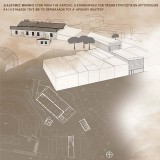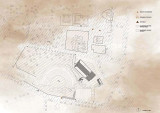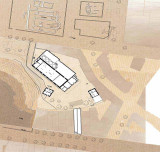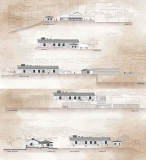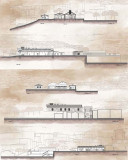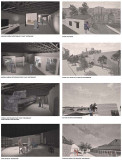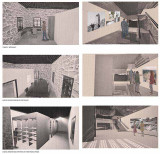Supervisor:
2024
This paper examines a variety of planning strategies, focusing on the area of the First Ancient Theatre of Larissa, with the aim of redefining the relationship of society with the city and the archaeological site of the monument, as well as the promotion of urban memory. More specifically, the paper proposes the reuse of the Former Military Bakeries, located in the archaeological site of the 1st Ancient Theatre of Larissa, as well as a former clothing store on Venizelos Street. The aim of the design proposal is to link the flow of the new functions of the building complex to the preservation of the multiple layers of urban memory, as well as to meet the needs observed in the city of Larissa.
The paper then examines the importance of the accessibility of the archaeological sites through alternative design principles in order to highlight and strengthen the city's dipole with the archaeological site of the Ancient Theatre.
The design was based on the systematic collection and processing of information from different sources such as primary archival material, architectural competitions, as well as photographic material related to the intervention area. The methodological objective was further to extend and enrich the analysis by processing material from field observation and recording in the study area. Through visits to the archaeological site and the adjacent urban area, an attempt was made to provide detailed historical documentation of the construction phases of the former military bakeries and the shop, to analyze their pathology, their imprint and relevant documentation, and to evaluate the existing relationship between the archaeological site and the city of Larissa.
This paper aims, through the reuse of the building complex and the design of the access to the archaeological site of the Ancient Theatre, to investigate the importance of design in preserving the multiple layers of memory of society and Larissa, as well as the ways in which design can shape the access and perception of the contemporary urban landscape.
Keywords: Adaptive Reuse, Memory, Access, Connection, Museum, First Ancient.
